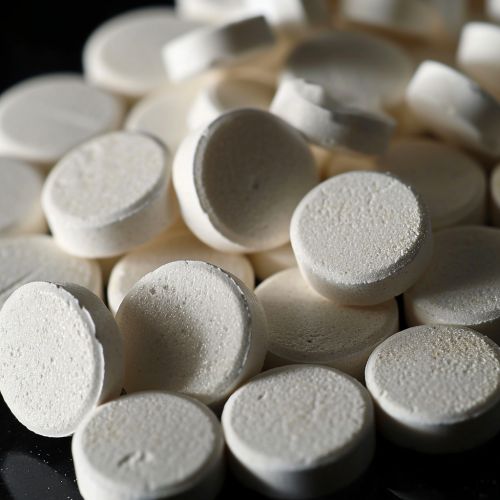Corticosteroid
Overview
Corticosteroids are a class of steroid hormones that are produced in the adrenal cortex of vertebrates, as well as the synthetic analogues of these hormones. They are involved in a wide range of physiological processes, including stress response, immune response, regulation of inflammation, carbohydrate metabolism, protein catabolism, blood electrolyte levels, and behavior.
Classification
Corticosteroids are classified into two main types: glucocorticoids and mineralocorticoids. This classification is based on their primary biological activity.
Glucocorticoids
Glucocorticoids are a type of corticosteroid hormone that is involved in glucose metabolism to regulate the body's use of sugar and protein. They suppress the immune system and reduce inflammation, swelling, redness, and pain. Examples of glucocorticoids include cortisol, which is naturally produced by the body, and prednisone, which is synthetic.
Mineralocorticoids
Mineralocorticoids are a type of corticosteroid hormone that maintain the balance of salt and water in the body. They influence the body's balance of sodium and potassium to help control blood pressure. The primary mineralocorticoid is aldosterone.
Biosynthesis
Corticosteroids are synthesized from cholesterol in the adrenal cortex. The process of biosynthesis involves several enzymatic steps. The primary pathway for the synthesis of glucocorticoids and mineralocorticoids is the steroidogenesis pathway.
Physiological Effects
Corticosteroids have a wide range of effects on many parts of the body. They play a crucial role in maintaining homeostasis and responding to stress.
Immune System
Corticosteroids suppress the immune system by reducing the activity and volume of the lymphatic system, thus reducing immune response and inflammation.
Metabolism
Corticosteroids influence the metabolism of carbohydrates and proteins. They promote the breakdown of proteins and the conversion of these proteins into glucose, leading to increased blood glucose levels.
Cardiovascular System
Corticosteroids affect the cardiovascular system by influencing the balance of water and electrolytes, which can impact blood pressure.
Medical Uses
Corticosteroids are used in medicine to treat a variety of diseases and conditions. They are commonly used as anti-inflammatory agents to treat conditions such as asthma, allergies, and autoimmune diseases. They are also used to treat adrenal insufficiency, a condition in which the adrenal glands do not produce enough corticosteroids.
Side Effects and Risks
While corticosteroids can be effective in treating many conditions, they can also have side effects and risks. These can include osteoporosis, weight gain, and mood changes. Long-term use can lead to Cushing's syndrome, a condition characterized by a round face, upper body obesity, and thin skin.
See Also


